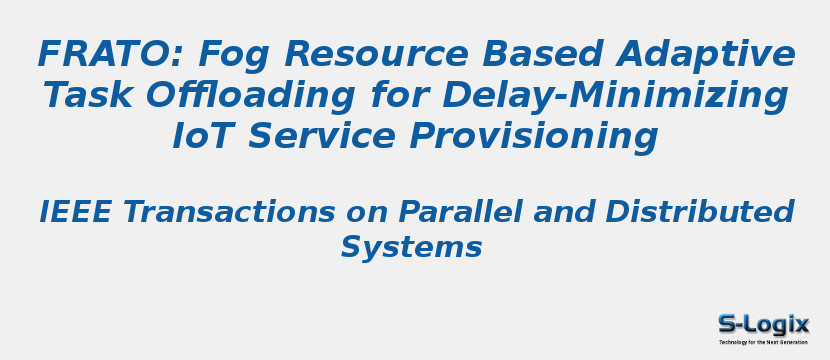Research Area: Fog Computing
In the IoT-based systems, the fog computing allows the fog nodes to offload and process tasks requested from IoT-enabled devices in a distributed manner instead of the centralized cloud servers to reduce the response delay. However, achieving such a benefit is still challenging in the systems with high rate of requests, which imply long queues of tasks in the fog nodes, thus exposing probably an inefficiency in terms of latency to offload the tasks. In addition, a complicated heterogeneous degree in the fog environment introduces an additional issue that many of single fogs can not process heavy tasks due to lack of available resources or limited computing capabilities. To cope with the situation, this article introduces FRATO (Fog Resource aware Adaptive Task Offloading) - a framework for the IoT-fog-cloud systems to offer the minimal service provisioning delay through an adaptive task offloading mechanism. Fundamentally, FRATO is based on the fog resource to select flexibly the optimal offloading policy, which in particular includes a collaborative task offloading solution based on the data fragment concept. In addition, two distributed fog resource allocation algorithms, namely TPRA and MaxRU are developed to deploy the optimized offloading solutions efficiently in cases of resource competition. Through the extensive simulation analysis, the FRATO-based service provisioning approaches show potential advantages in reducing the average delay significantly in the systems with high rate of service requests and heterogeneous fog environment compared with the existing solutions.
Keywords:
Author(s) Name: Hoa Tran-Dang; Dong-Seong Kim
Journal name: IEEE Transactions on Parallel and Distributed Systems
Conferrence name:
Publisher name: IEEE
DOI: 10.1109/TPDS.2021.3067654
Volume Information: Volume: 32, Issue: 10, Page(s): 2491 - 2508
Paper Link: https://ieeexplore.ieee.org/document/9382907
